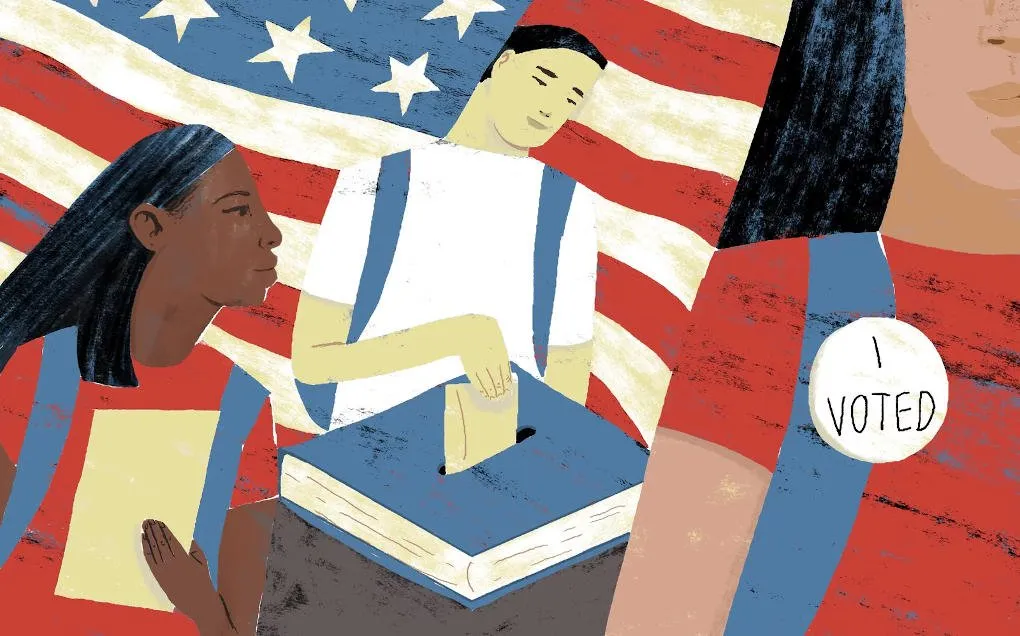Despite the plethora of outlandish, unnecessary, and generally stupid bills that emanate from the current Kentucky Legislature, it can, apparently, get something right. Or at least it appears right; we will have to wait for an appraisal from Kentucky educators.
HB 535 is titled: AN ACT relating to civic education. (I have to wonder if the correct title should have referenced “civics.”)
HB 535 seeks to amend KRS 158.141, which took effect in 2018 and required graduating Kentucky high school seniors to pass “a civics test composed of 100 questions drawn from the test administered by the United States Citizenship and Immigration Services to persons seeking to become naturalized citizens.”
HB 535 would, “beginning with the entering ninth grade class of the 2025–2026 school year, require a one-half credit course in civic literacy” as a graduation requirement.
Section (3) of HB 535 states [bolding and underlining in original]:
A civic literacy course shall include but not be limited to instruction in the following areas:
- An overview of America’s founding history, including but not limited to key texts; the role and operations of local, state, and national governments; the rights and responsibilities of citizenship; federalism; civic liberties; and civil rights:
- Principles of the Unites States government:
- The Constitution of Kentucky and the Constitution of the United States:
- Institutions of the United States government and the responsibilities of the executive branch, legislative branch, and judicial branch:
- State government and local governments and the role of each:
- Political parties and interest groups:
- Campaigns and elections:
- United States Congress:
- Domestic policy:
- Comparative systems:
- International relations: and
- Major issues facing government.
Secretary of State Michael Adams has endorsed this bill and, in fact, was instrumental in getting it before the legislature. HB 535 was co-sponsored by five Republican House members. If the bill is going to prove helpful in generating a greater knowledge among students about how our government works and functions, it is reasonable to question why no Democrats chose to be co-sponsors as well, or perhaps the Republican majority simply chose to ignore Democrats in crafting the bill.
I can remember taking a required Civics course early in high school and enjoyed it. While we didn’t immerse ourselves in a number of the subjects contained in Section 3 above, we did at least get some grounding in the history of our government, and I seem to recall that we were required to know the names of several of the power players in the presidential administration. My exposure to Civics occurred during the period when the minimum voting age was still twenty-one. The voting age was not lowered to eighteen until 1971 when the Twenty-sixth Amendment was ratified.
Undoubtedly, there will be students in the coming years who will be totally bored by Civics lessons. That is unfortunate, because these students will be the ones guiding government policy in the coming decades, and the more they understand about how government operates, the wiser will be their choices when voting.
The list above is probably going to require some intense work in order to cover the content, and studying the Kentucky Constitution will be a challenge since it is four times longer than the Federal Constitution.
Perhaps the most important sessions will be devoted to item (d) if they come away with an understanding of how the three divisions interact with one another and create a balance that is both tenuous and fragile (and, of late, seems to be not working at all).
Another great outcome from a Civics course will be if the students understand how imperfect our Constitution is, that our founders were not superhuman and prescient and did not possess abilities beyond many a common person, else we would not have twenty-seven amendments to correct mistakes and malfunctions, including one amendment that eliminated a previous amendment.
HB 535 raises an interesting question. Wonder how many of our current legislators have ever been subjected to the extent of information required in this bill?
And an irony in all this is that the bill places additional burdens on Kentucky teachers while the same legislators refuse to raise their pay.
--30--
Editor’s note: This article was written several weeks ago. HB 535 appears to be moving along. It was easily passed in the House by a vote of 77–13 on March 11 and sent to the Senate, where it it has been assigned to the Education Committee (as of March 15.)
Written by Chuck Witt, a retired architect, a former newspaper columnist, and a lifelong resident of Winchester. Cross-posted from WinCity Voices.







